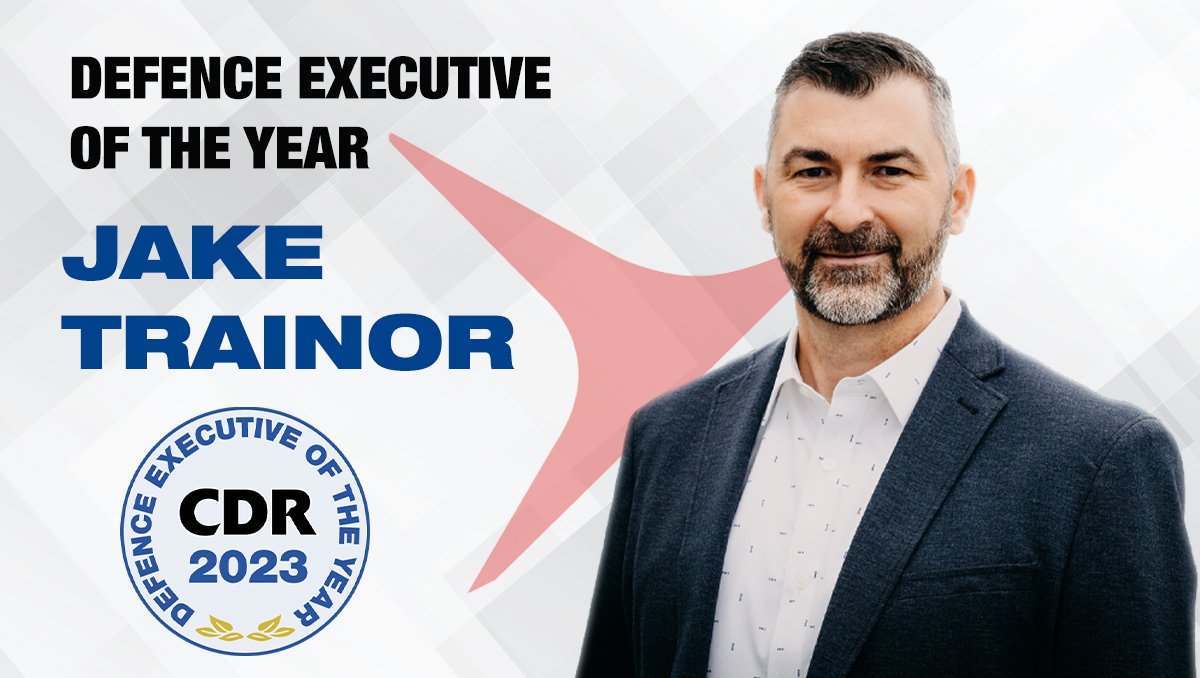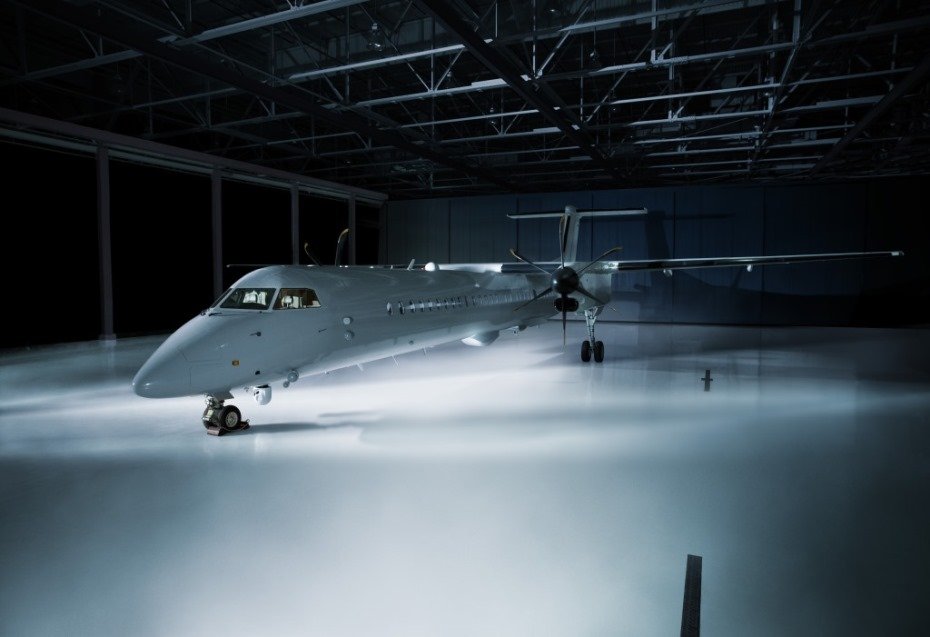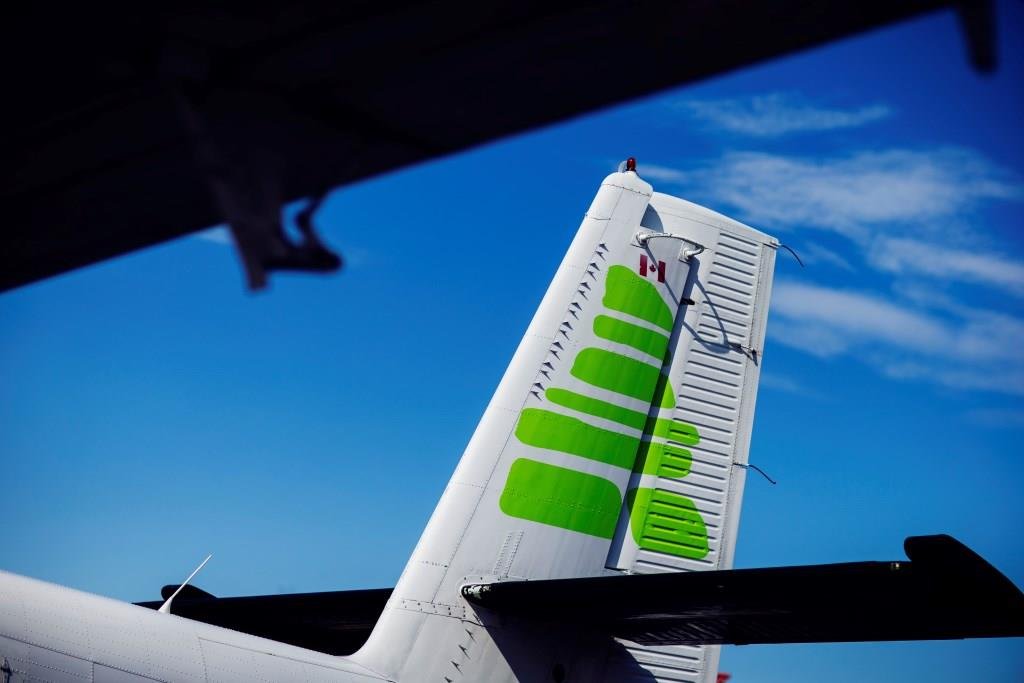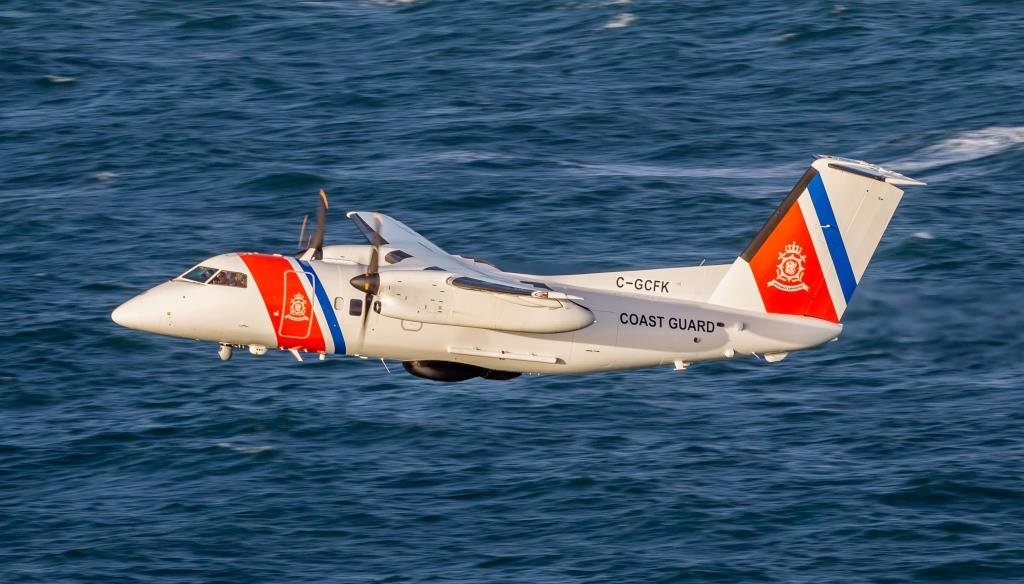DEFENCE EXECUTIVE OF THE YEAR - JAKE TRAINOR CEO - PAL Group of Companies
BY JAMES CARELESS
Defence Executive of the Year - Jake Trainor
CEO - PAL Group of Companies

For CDR’s annual DEOY feature, we asked Ottawa Bureau Chief, James Careless, to profile this seasoned executive. Trainor’s deep roots in Canada’s military and defence industry, moving industry to a war footing, targeting Canada’s Multi-Mission Aircraft (CMMA) project, and PAL’s involvement in SkyAlyne, were all discussed as part of our in-depth profile. Please join us in celebrating Canada’s Defence Executive of the Year for 2023.
When we asked Jake Trainor, Chief Executive Officer for the PAL Group of Companies, how he felt about being named DEOY, he replied by devoting less than 20 words to himself in his answer, and the rest to his company.
“I'd say humbled but excited at the same time,” Trainor told CDR. “It's obviously nice to receive the award, but it's really a reflection on the broader PAL team. And I think it's also a reflection of the evolution of the company and our growth. When I joined the company in 2009, there were 450 people. Now we're going into 2023 with just over 1800 across the various companies in the family.”
SETTING THE STAGE
The success of the PAL Group of Companies is always top-of-mind for Jake Trainor, which is one of the many reasons he caught CDR’s attention and won the 2023 DEOY award. “The PAL Group is a diversified Canadian organization focused on the aerospace and aviation industries across a wide range of markets, offering unparalleled customer service to clients in Canada and around the world,” Trainor told CDR. “We are a collection of different yet complementary companies that are organized into two verticals, aviation and defence.”
On the aviation side, there’s PAL Airlines, which Trainor described as being “the largest independent airline in Eastern Canada.” It flies a mix of De Havilland/Bombardier Dash 8-Q400, Dash 8-300, Dash 8-100 and Beech 1900D propeller aircraft. From its hub in St. John’s NL, PAL Airlines has been offering scheduled passengers services for over 40 years.
The PAL Group of Companies also includes Air Borealis, which is an indigenous-owned airline in which this company serves as managing partner. “It's an airline headquartered in Goose Bay [NL] that primarily serves Northern and Coastal Labrador,” said Trainor. Air Borealis flies De Havilland Twin Otters, an ideal aircraft for flying in the harshest of climatic and weather conditions.
Finally, there’s MFC Training (formerly known as the Moncton Flying College), “which is Canada's largest private flight school with campuses in Moncton and Fredericton,” he said. Opened in 1929 by the Moncton Flying Club, MFC has trained more than 20,000 pilots from around the world.
PAL AEROSPACE
There are many PAL companies on the defence side of the business. One of these is PAL Aerospace, which outfits specialized aircraft and provides trained crew for Intelligence, Surveillance and Reconnaissance (ISR) missions, air ambulance services, and special mission capabilities.
“We like to say that PAL Aerospace is a single point of accountability for customers on these specialized aircraft,” said Trainor. “PAL Aerospace delivers complete special missions flying services for Canada’s Department of Fisheries and Oceans’ Fisheries Aerial Surveillance and Enforcement Program, the Netherland’s Coast Guard and the Dutch Caribbean Coast Guard. The company also partners with Airbus Defense to support Canada’s new CC295 fixed-wing search and rescue fleet, delivers medevac services for several jurisdictions in Atlantic Canada, and supports Maritime Patrol Aircraft for the United Arab Emirates Air Force.”
DIVERSIFIED PORTFOLIO
Then there’s CarteNav Solutions, “which is our mission system software house based in Halifax,” Trainor told CDR. “CarteNav provides mission system ground-based data handling for many ISR operations worldwide.”
“As well, we have PAL Engineering, which is a full scope Transport Canada Design Approved Organization that supports many of our special missions aircraft and in-service support activities,” said Trainor. “And there’s Atlantic Avionics, which is a specialty avionics modifier based in Halifax.”
“I would be remiss in not mentioning our parent company, which is Exchange Income Corporation (EIC),” he continued. “We were acquired by them in 2015 and they've really been key to our growth. Many people are unfamiliar with EIC, but it is – in aggregate – the largest diversified aviation company in Canada with operations from coast to coast to coast.”
MILITARY ROOTS
As befits someone responsible for the management of several defence companies, Jake Trainor began his career in the Canadian Armed Forces. “I graduated from the Royal Military College in Electrical Engineering as part of the Class of ‘94,” Trainor told CDR. “I became an RCAF pilot and flew tactical helicopters for 427 Special Operations Aviation Squadron.”
Trainor retired from the RCAF in 2002. “I got an MBA from the Ivey School of Business at Western University, worked in the Middle East and then on Bay Street for several years prior to joining PAL Aerospace in 2009” he said. “Initially, I was a Program Manager for the UAE Maritime Patrol Aircraft project, the company’s largest project at the time.”
Trainor’s career path took him upwards through PAL Aerospace’s management ranks, where he rose to the rank of COO. “In 2019, I was offered the position of the Chief Executive Officer for the PAL Group of Companies,” he said.
As for Jake Trainor’s management style? “If I had to characterize that in a soundbite, it would really be an open and collaborative approach that allows for debate,” he told CDR. “I think that works well here because we're a company that's been built by taking on difficult tasks. To succeed in these situations, we have to be comfortable challenging ourselves internally and testing our ideas before moving ahead.”
“One of the core tenets of our organization is quality and innovation, and that underpins everything we do – obviously with the focus on the customer,” added Trainor. “Living up to these tenets requires constant challenging on our part to keep things fresh.”
CONTRIBUTING TO CANADIAN DEFENCE 
According to Jake Trainor, “we at the PAL Group of Companies are significant contributors to Canada’s defence framework.”
A case in point: PAL Aerospace flies between 8,000 and 9,000 hours of ISR flights annually for the Department of National Defence (DND), DFO, and Transport Canada. In addition, as the fixed-wing SAR program continues to progress, we’re directly providing maintenance and support services at several bases for the CAF, plus ISS integrator services via AirPro,” Trainor told CDR. “We also provide significant support to the RCAF’s CT-142 Dash-8 fleet through a variety of contracts.”
That’s not all: PAL Aerospace is a member of the SkyAlyne team headed up by CAE and KF Aerospace that is bidding on Canada’s Future Aircrew Training (FAcT) program. It will replace the existing North Atlantic Treaty Organization (NATO) Flying Training in Canada program currently provided by CAE, and the Contracted Flying Training and Support program currently provided by Allied Wings (with KF Aerospace as prime contractor).
“We're excited to be part of the SkyAlyne team for the FAcT bid,” said Trainor. “We would be providing a significant portion of the sensor operator training solution, which is something right in our wheelhouse. And then when I look beyond that, the Canadian Multi-Mission Aircraft (CMMA) procurement is a huge opportunity for us and the Canadian aerospace industry. We conduct anti-submarine warfare activities for other nations, and I think we could put a very compelling case forward for a Canadian-made solution for the RCAF.”
CALLING ON INDUSTRY
As someone with personal military experience and a long career in the Canadian defence industry, Jake Trainor is passionate about the defence of Canada. He is also knowledgeable about the defence industry’s ability to enhance our country’s national security, and eager to engage the government on this subject.
“I think there’s a lot of room for discussion with DND and the Government of Canada on how Canadian industry can make increasingly meaningful contributions to build capacity for the country,” he explained. “In having that dialogue, I would start by certainly acknowledging that DND is responsible for the delivery of capability and outcomes, and that there is absolutely a set of activities undertaken by the CAF where the direct ownership of assets, or direct deployment of Forces personnel is required. At the same time, there are certainly significant ways for Canadian industry to contribute to capacity through alternate service delivery arrangements that would address operational demands, speed procurement processes, mitigate personnel and recruitment challenges, and ultimately enhance the CAF’s ability to deliver on its mandate.”
MOVING INDUSTRY TO
A WAR FOOTING
This is particularly true during the ongoing defence of Ukraine against Russian aggression, with Canada making substantial donations of military equipment to the Ukrainians that needs to be replaced. “As Canada looks to move its defence industry to a ‘wartime footing’ to replace these donations from the CAF’s arsenal, this is an especially relevant discussion,” said Trainor. “To establish the certainty that the Canadian defence industry needs to attract the kind of private sector capital and investment needed to get us on this footing, government needs to identify long-term contracts that can be leveraged to generate investment, and create advantages for Canadian companies who are committed to keeping work and building skills here in Canada.”
If the Canadian government gets serious about bringing our defence industry into the loop, our country’s ability to respond to dangerous challenges like the Russian invasion of Ukraine will improve. “Again, we can bring critical capabilities to bear, especially domestically in terms of a partnership with both the Canadian government and DND,” Trainor said. “PAL Aerospace does this now through our surveillance contracts. Generally speaking, there are challenges that the CAF and DND are facing that industry can help resolve through partnership and hybrid solutions. We know from our experience globally that this approach works in other nations. It can certainly work here as well.”
INDIGENOUS PARTNERSHIPS
Forming constructive ‘win-win’ partnerships with Canada’s indigenous communities is a major priority for the PAL Group of Companies.
Air Borealis is a prime example of this. The partnership between PAL, the Labrador Innu and the Nunatsiavut Inuit was created to build greater access to Labrador and Quebec’s Lower North Shore. The company is dedicated to providing sustainable air transportation in this region in ways that respect and address these needs.
“We are very proud of the indigenous partnerships that we've established and continue to build both directly at PAL through Air Borealis, and through our membership in the EIC family of companies,” said Trainor. A case in point: MFC Training is providing flight training to indigenous students at Goose Bay and Thompson, Manitoba, with plans to open classes in Nunavut. Successful graduates will then have the chance to build their flying careers at Air Borealis and PAL Airlines, or at other EIC carriers including Calm Air, Perimeter Aviation and Wasaya Airlines.
“Providing indigenous Canadians with opportunities to pursue rewarding careers in aviation is beneficial to our northern airlines, because it ensures that skills and benefits associated with development in the North stay close to home,” Trainor told CDR. “It’s all about giving indigenous people the chance to stay and work in their own communities.”
PAL’s motivation for fostering meaningful relationships with Canada’s indigenous communities is both moral and practical.
On the moral side, “our ethos at the PAL Group of Companies is we recognize and respect that indigenous communities expect and deserve increased opportunities to participate meaningfully in the development of Canada's North,” said Trainor. “This means engaging with communities to build sustainable opportunities and businesses that are needed in this critical part of our geography.”
On the business side, it makes sense for PAL to ‘grow’ pilots and support staff in the northern communities that they serve, so that these skilled employees don’t ‘go South’ as soon as jobs open up in these regions. This can happen when people brought in from southern Canada get the chance to ‘go home’ when job offers come in. Given that there’s a shortage of skilled pilots that is expected to worsen over time, PAL’s decision to cultivate northern talent is a very wise move.
LOOKING AHEAD
Thanks to COVID-19, the last three years have been extremely challenging for Canadian business, including the PAL Group of Companies.
“During the pandemic, many of our companies had to work together in new and unique ways to survive,” Trainor said. “This has resulted in us becoming a stronger group, to be honest. Over at PAL Airlines, our aviation side has filled in a lot of the ‘white space’ created as a result of the pandemic, as we’ve expanded to provide essential regional services to eastern Canada, Quebec, and the North. Meanwhile, our defence side has taken advantage of the growing demand for dependable ISR capabilities and services worldwide to grow and thrive.”
Going forward in 2023, Jake Trainor wants to ensure that the PAL Group of Companies’ “growth trajectory is sustainable, while at the same time continuing to execute on the essential programs and services that our customers rely on us for,” he said. “And more than ever, my focus continues to be on fostering the type of positive, open workplace that we provide for our team members. We’re known for fostering rewarding careers offering diverse, meaningful opportunities both in Canada and abroad, coupled with the stability of long-term employment. As we continue to grow, it’s important to me that we focus on elements that have made us successful – supporting the team, challenging conventional thinking, and maintaining a relentless focus on delivering for our customers.”
James Careless is CDR’s Ottawa Bureau Chief

